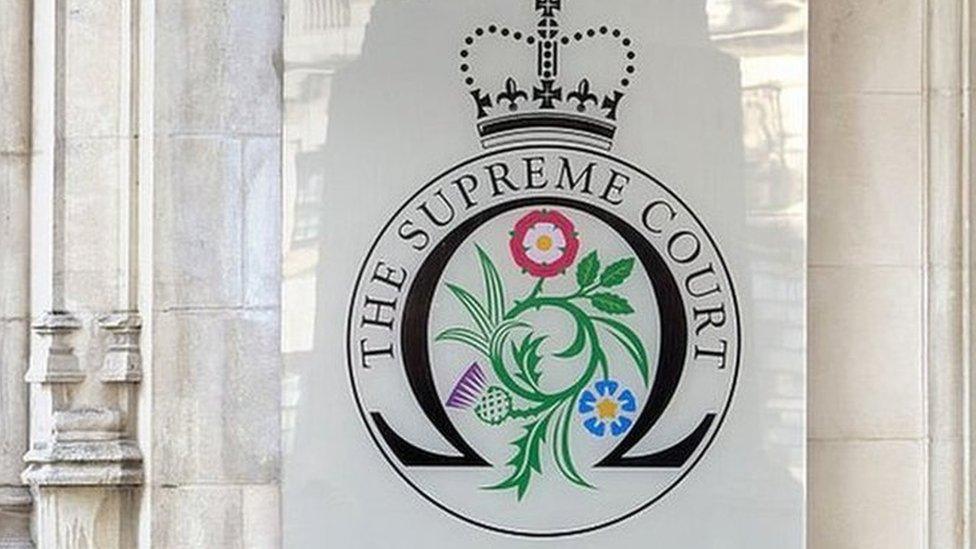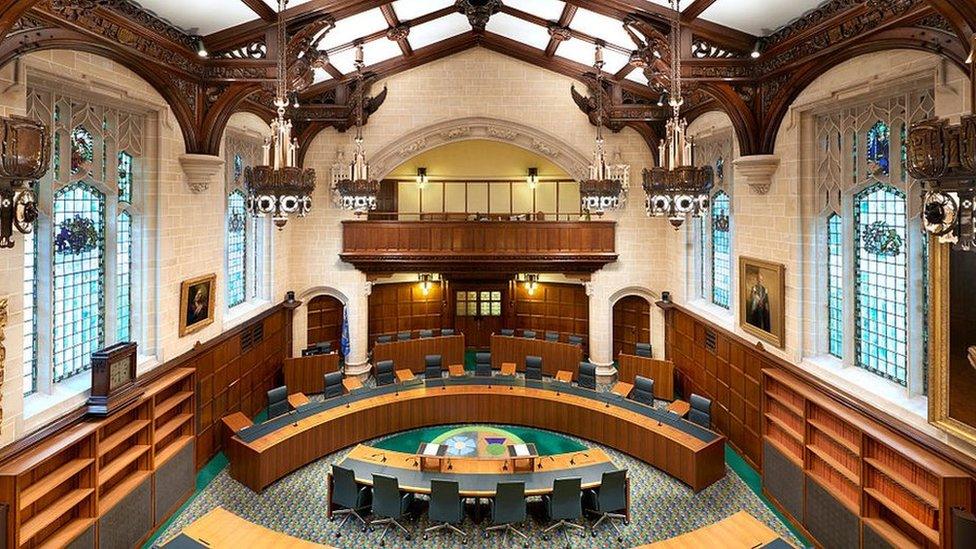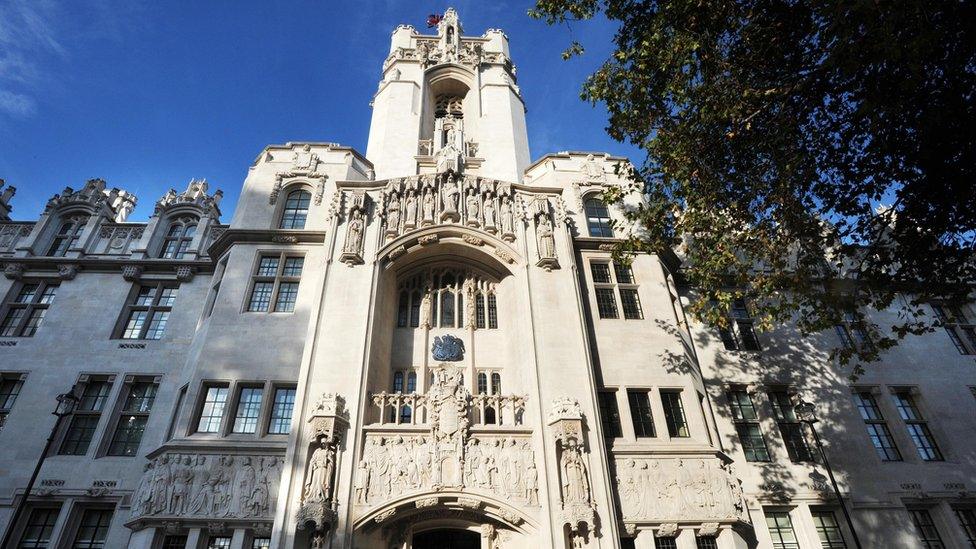SNP publishes arguments in indyref2 court case
- Published

The SNP has published the arguments it has put to the Supreme Court in support of Holyrood's power to legislate for an independence referendum.
The lord advocate had already put forward a written case to the court on behalf of the Scottish government, arguing that MSPs can set up a vote.
The SNP has also sought to make extra arguments as a separate player.
But the party will not address judges during the hearing itself, which takes place in London on 11 and 12 October.
Both the Scottish and UK governments will be allowed to produce a written response to the SNP case, as well as presenting their own points in court.
First minister and SNP leader Nicola Sturgeon wants to hold an independence referendum in October 2023.
She wants to win an agreement with the UK government to deliver this in the same way as the previous vote in 2014, but successive prime ministers have refused to do a deal.
In an attempt to break this deadlock, Lord Advocate Dorothy Bain - the Scottish government's top law officer - has asked the Supreme Court to rule on whether MSPs could set up a referendum themselves.
She will argue that the simple act of holding a "consultative" referendum would only seek the views of Scots, rather than threaten to directly break up the UK.
However, the Advocate General for Scotland - the UK government's top Scottish law officer - will argue that a referendum would clearly relate to the reserved matter of the union, which only MPs can legislate on.

The law officers will develop these points in court in October, but judges will also consider written arguments from the SNP.
The party was told it could submit a short paper, but was warned that this should not duplicate the points made by the lord advocate.
The SNP's case, external focuses chiefly on the right of all peoples to self-determination under a UN charter - something it says is "one of the most fundamental rights of all".
It cites previous occasions when the UK government argued in favour of this in international court cases, and argues that any interpretation of the Scotland Act should take this into account.
It also supports the lord advocate's key argument, that the result of any vote would not in itself deliver independence.
Oral arguments
It reads: "Whatever the outcome of a referendum, it cannot of itself have any effect on the union or on the UK parliament.
"That there would be subsequent discussions between the UK and Scottish governments in the event that the Scottish people indicate their support for Scottish independence does not change that. Those discussions are separate from the referendum and do not inform its purpose."
The UK government has already rejected this line of argument, saying there is "no secret" about the Scottish government's intentions should it win a referendum.
It wrote: "A referendum is not, and is not designed to be, an exercise in mere abstract opinion polling at considerable public expense. Were the outcome to favour independence, it would be used...to seek to build momentum towards...termination of the union and the secession of Scotland."
The court will hear oral arguments on 11 and 12 October, and judges are likely to deliver a verdict later in the year.


This is a kind of aperitif for the case coming up in just two weeks' time.
It is an appetiser for the judges to mull over before the main course, served up by the law officers of the Scottish and UK governments.
It may have some bearing on their thinking, or inform some questions they pose during deliberations - and it underlines that much of what we actually hear in court will be rooted in relatively dry case law and abstract legal discussion.
At its core this is a debate over the definition of the words "relates to", and how narrowly they should be read in the Scotland Act when it comes to whether a referendum relates to the union itself.
Fans of political bombast should not despair, however - there will be no shortage of that around the sidelines.
Nicola Sturgeon will make her SNP conference speech the afternoon before the court sits, and she will make arguments aimed more broadly at the general public, in a bid to win them round to the idea of a referendum.
The case should also be viewed in the context of the political accord she still wants to find or force with UK ministers - that is a third set of arguments which will continue regardless of which side the judges come down on.
- Published11 October 2022
